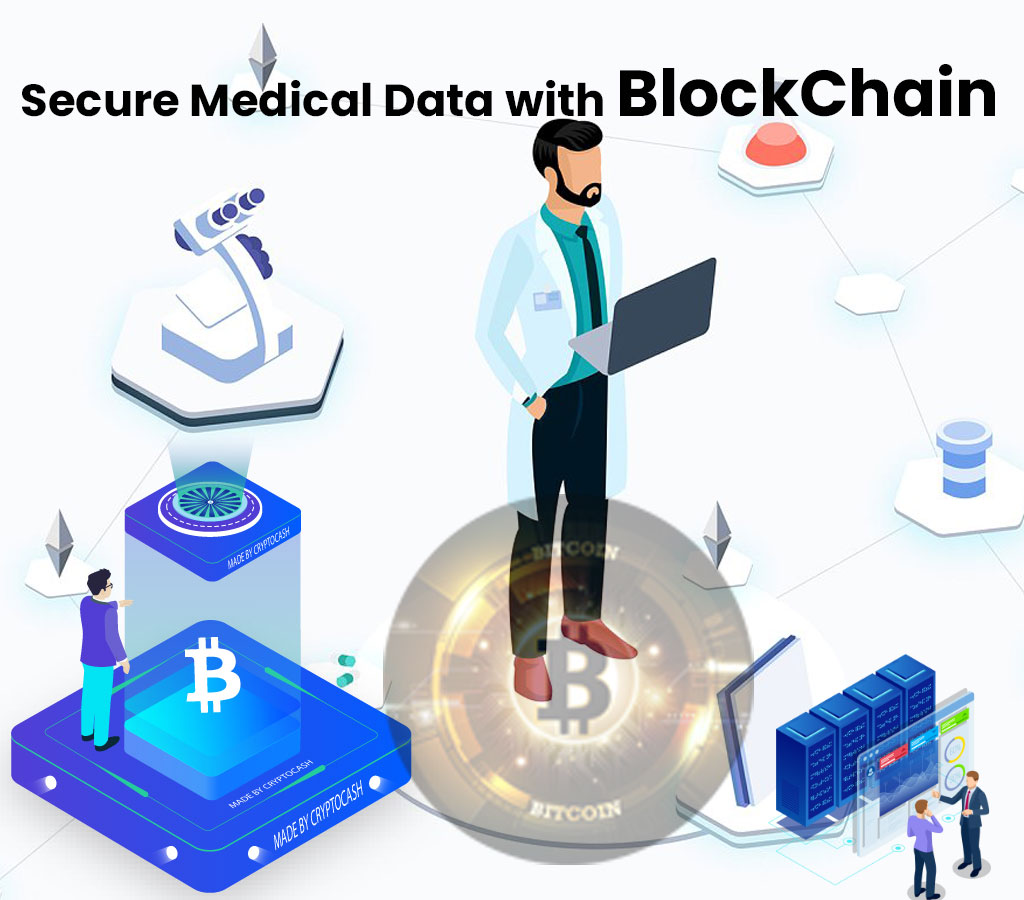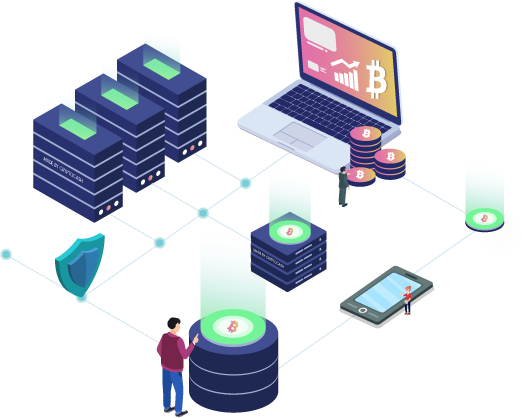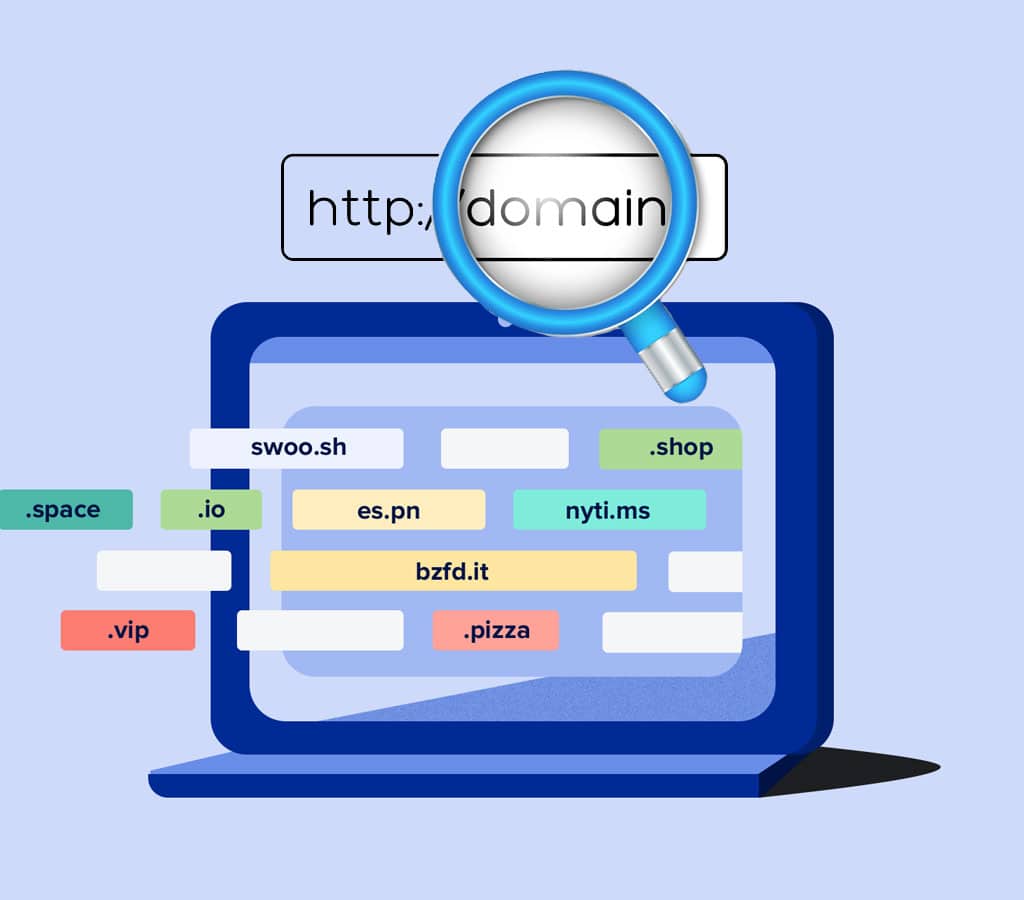Secure Medical Data with BlockChain

Secure Medical Data with BlockChain
One of the main issues which troubles Healthcare industry is the Security of Medical Data. Data breaches in 2018 was reported as one of the main problem in Australia, Norway, USA, and other countries. In this concern, US occupies the first place with 392 incidents, which is more than half of the global total. After US, Canada ranks second with 21 incidents, followed by UK with 20 and Australia with 17 data breaches. Other countries are not accounting more than seven incidents.
This data breaches are not just restricting, but they are also extended to communication and transfer of patient’s medical data that is becoming difficult between healthcare systems and vendors. It shows a very high negative impact on the quality of patient treatment and care. With the help of various technologies innovations like fitness trackers, mobile healthcare apps, wearable, lot of health data of the patients is on wide spread, if they are not effectively incorporated into patient’s care on a broader scale.
Issues arise mainly when different vendors has different records of the patient’s data which is not valid resulting in errors, incompleteness, and inconsistency
Resolution of Medical data security issues
Researchers at MIT, Ariel Ekblaw and Andrew Lippman and John D.Halamka, MD, CIO at Beth Israel Deaconess Medical Center, in the Harvard Business Review, mentioned that Blockchain can generalize the past medical records, eliminating the need for custom programming for it to work with individual EHR vendors. This will quickly scale up the implementation process.
Yet, some concern need to be considered first, like how to issue a private key access to a trusted person, either family or friend in case of any emergency, where patient would not be able to access, as indicated by Miami Professor Robert Plant.
Leading the various Start-ups
The implementation of blockchain technology for maintaining health records at government level is at experimental stage in other countries. For instance, Estonia hired a blockchain company locally for securing the medical data records of approximately half of its citizens, as reported by Medical Futurist.
PokitDok is working via Dokchain, in which a network of transaction processors that are operate the clinical and financial data across the healthcare industry.
The main focus is to bring into limelight a new healthcare economy where data and services are exchangeable and quantifiable, and most importantly privacy and security of sensitive information are guarded and transaction history is audited longitudinally.
Universal Health Coins
Medical Data Breaches can be kept at check with the help of universal health coins. It involves usage of Blockchain technology for the elimination of third party entities for managing payments for various services between provider and patient that in turn reduces the cost of unnecessary administrative charges.
UHC is a ‘token based, anonymous health cost network’, instead of just being a health insurance. It operates as the members of UHC pay some amount monthly, in return of which they are issued UHC, which are validated via Blockchain healthcare technology. These UHC can be used for direct payment for the services they avail at provider’s location.

Wearable and IoT Data Collection
US Food and Drug Administration in partnership with IBM Watson Health, explored the usage of Blockchain technology for the transfer of healthcare data from wearable to other IoT devices. The main motto of this project is to ensure the safety of the health data and to make easy accessibility of researchers, patients and healthcare providers. The various issues related to the medical data security issues are lowered by the accountability and transparency of the blockchain technology.
Distributed Ledger
Shared blockchain ledgers are public, as the data in it is replicated across the blocks in the network. This makes it more secure than the traditional information storage, which keeps the entire data in a single location, i.e., centralized.
The control of blockchain can be through two chains, public and private. For example with the help of the private chain, only the user/patient can have the access, so if any hacker was to steal the data, every participant in the network need to be simultaneously breached.
Conclusion on How to Secure Medical Data with BlockChain
Future Of BlockChain extends a perfect solution for Medical Data Security. It is proven that Blockchain technology is indeed a perfect solution for various medical data security issues even at global level. Yet, one has to remember that achieving this can be made possible with the help of best technical backup. If you are looking for BlockChain Certification training or any BlockChain development consulting or BlockChain corporate training, then reach 360EduKraft, a pioneer in BlockChain Training in India.
UPCOMING TRAINING SCHEDULE:
Require a different session ? Let us know
Recent Blog Posts
What is Web Hosting, Types and Features of Web Hosting?
What is Web Hosting, Types and Features of Web Hosting? Strictly Beginners Guide You might be reading this information for one these reasons: you’re a blogger looking to get a…
Why Should you Use a Custom Domain Name for your Blog?
Why Should you use a Custom Domain Name for your Blog? A great success factor for many popular blogs or businesses is a domain name. The reason is that we…
Top 10 Popular Artificial Intelligence and Machine Learning Tools
Top 10 Popular Artificial Intelligence and machine Learning Tools & Frameworks for Developers Top 10 Machine Learning Tools for 2025: Elevate Your AI Skills Artificial intelligence is going to be…





Leave a Reply
You must be logged in to post a comment.